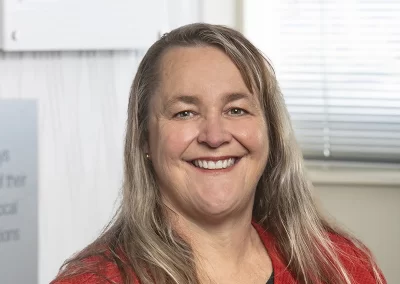The Government has announced its intention to introduce mandatory standards for large superannuation funds to, amongst other things, deliver timely and compassionate handling of death benefits. Do we have a problem with paying out super when a member dies?
The value of superannuation in Australia is now around $4.1 trillion. When you die, your super does not automatically form part of your estate but instead, is paid to your eligible beneficiaries by the fund trustee according to the fund rules, superannuation law, and any death benefit nomination you made.
Complaints to the Australian Financial Complaints Authority (AFCA) about the handling of death benefits surged sevenfold between 2021 and 2023; the critical issue was delays in payments. While most super death benefits are paid within 3 months, for others it can take well over a year. The super laws do not specify a time period only that super needs to be paid to beneficiaries “as soon as practicable” after the death of the member.
How to make sure your super goes to the right place
Death benefits are a complex area. The superannuation fund trustee has discretion over who gets your super benefits unless you have made a valid death nomination. If you don’t make a decision, or let your nomination lapse, then the fund has the discretion to pay your super to any of your dependants or your estate.
There are four types of death nominations:
- Binding death benefit nomination
Directs your super to your nominated eligible beneficiary, the trustee is bound by law to pay your super to that person as soon as practicable after your death. Generally, death benefit nominations lapse after 3 years unless it is a non-lapsing binding death nomination. - Non-lapsing binding death benefit nomination
If permitted by your trust deed, a non-lapsing binding death benefit nomination will remain in place unless you cancel or replace it. When you die, your super is directed to the person you nominate. - Non-binding death nomination
A guide for trustees as to who should receive your super when you die but the trustee retains control over who the benefits are paid to. This might be the person you nominate but the trustees can use their discretion to pay your super to someone else or to your estate. - Reversionary beneficiary
If you are taking an income stream from your superannuation at the time of your death (pension), the payments can revert to your nominated beneficiary at the time of your death and the pension will be automatically paid to that person. Only certain dependants can receive reversionary pensions, generally a spouse or child under 18 years.
Who is eligible to receive your super?
Your super can be paid to a dependant, your legal representative (for example, the executor of your will), or someone who has an interdependency relationship with you. A dependant for superannuation purposes is “the spouse of the person, any child of the person and any person with whom the person has an interdependency relationship”. An interdependency relationship is where someone depends on you for financial support or care.
What happens if I don’t make a nomination?
If you have not made a death benefit nomination, the trustees will decide who to pay your superannuation to according to state or territory laws. This will be a superannuation dependant or the legal representative of your estate to then be distributed according to your Will.
Where it can go wrong
There have been a number of court cases over the years that have successfully contested the validity of death nominations. For a death nomination to be valid it must be in writing, signed and dated by you, and witnessed. The wording of your nomination also needs to be clear and legally binding. If you nominate a person, ensure you use their legal name. If your super is to be directed to your estate, ensure the wording uses the correct legal terminology.
One of the reasons for delays in paying death benefit nominations cited by the funds is where there is no nomination (or it is expired or invalid), there are multiple potential claimants, and the trustee needs to work through sometimes complex family scenarios.
The bottom line is, young or old, check your nominations with your superannuation fund and make sure you have the right type of nomination in place, and it is valid and correct. While there still might be a delay in getting your super where it needs to go if you die, the process will be a lot quicker and less onerous for your loved ones.
Want to Know More About Superannuation?
Bentleys Newcastle has an extremely knowledgeable Self-Managed Superannuation Fund (SMSF) Administration team headed by our SMSF specialist, Kim Phillips, who many clients have already spoken to.
Together with our Bentleys Newcastle Wealth Financial Planning team, headed by Laurence Poulter, we have a wealth of knowledge and understanding to assist you with your retirement planning strategies or questions.
Our team is always available to discuss your concerns.
Latest Articles & Insights
Phasing out cheques
The Government has announced a transition plan to phase out the use of cheques. Under the plan, cheques will stop being issued by 30 June 2028 and stop being accepted on 30 September 2029. The use of cheques has declined dramatically over the last 10 years, declining...
Tax deduction denied for signature basketball shoe R&D
The Federal Court has denied a sports company’s appeal to claim research & development incentives for the creation of an Australian signature basketball The Federal Court has denied a sports company’s appeal to claim research & development incentives for the...
What’s ahead in 2025?
The last few years have been a rollercoaster ride of instability. 2025 holds hope, but not a guarantee, of greater stability and certainty. We explore some of the key changes and challenges. An election Welcome to political advertising slipping into your social...
Are student loans too big?
Australian voters tend to reject US style education favouring more egalitarian systems where income does not determine access. In the US, average student debt is USD $37,693 (public and private debt) taking an average of 20 years for individuals to repay. But,...
When overseas workers are Australian employees
The Fair Work Commission has determined that a Philippines based “independent contractor” was an employee unfairly dismissed by her Australian employer. Like us, you are probably curious how a foreign national living in the Philippines, who had an ‘independent...
What makes or breaks Christmas?
The cost of living has eased over the past year but consumers are still under pressure. For business, planning is the key to managing Christmas volatility. The countdown to Christmas is on and we’re in the midst of a headlong rush to maximise any remaining...



